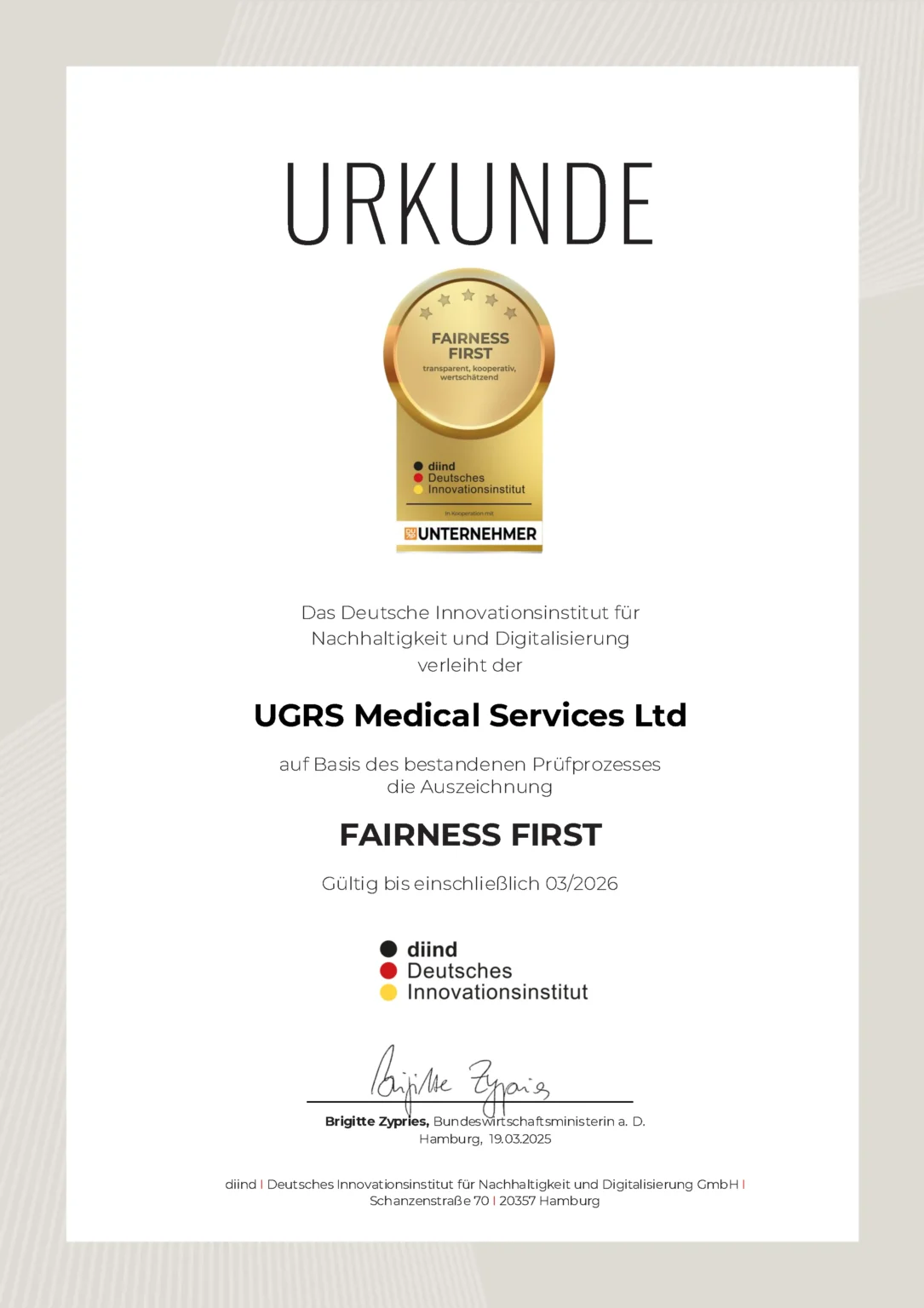Home » UGRS.Knowledge – Glossary on Penis Enlargement, Anatomy & Urology » Nocturia (urge to urinate at night)
Nocturia (urge to urinate at night)
Nocturia is a medical term for frequent urination at night. Those affected wake up several times a night because they feel the urgent need to go to the toilet. This interrupts their natural sleep rhythm, which often leads to exhaustion and a reduced quality of life.
What happens with nocturia?
Normally, the bladder can store urine for several hours at night without you having to wake up. With nocturia, this mechanism is disrupted:
- The bladder reports an urge to urinate even though it is not completely full
- Sleep is interrupted once or several times to urinate
- This can happen occasionally or several times a night
Nocturia is medically diagnosed when urination at night regularly interrupts sleep.
Possible causes
Nocturia is not a disease in its own right, but a symptom that can have many different causes. These include
Bladder-related causes:
- Overactive bladder (technical term: overactive bladder / OAB)
- Inflammation of the bladder (cystitis)
- Urinary tract infection
Hormonal or physical causes:
- Reduced release of antidiuretic hormone (ADH), which normally reduces urine production at night
- Heart failure
- Diabetes mellitus (diabetes)
- Chronic kidney disease
Lifestyle and environmental influences:
- Increased fluid intake in the evening
- Caffeine, alcohol or dehydrating medication
- Sleep disorders or sleep apnea
Diagnosis & clarification
The cause should be clarified so that nocturia can be treated in a targeted manner. Possible diagnostic steps are
- Medical history: medical consultation about complaints, lifestyle habits and previous illnesses
- Micturition log: Recording of drinking and toilet times over several days
- Blood and urine tests, ultrasound or bladder pressure measurement if necessary
Treatment options
The treatment depends on the cause. Frequently used measures are
- Behavioral therapy:
- Reduce your fluid intake in the evening
- Going to the toilet directly before going to bed
- Avoid caffeine and alcohol in the evening
- Medication, e.g:
- Anticholinergics for overactive bladder
- Desmopressin: synthetic hormone to reduce urine production at night
- Treatment of the underlying disease (e.g. diabetes or heart failure)
- Physiotherapy for pelvic floor problems
Everyday tips
- Fixed bedtimes promote the sleep rhythm
- Elevate your legs in the evening (to drain “water in the legs” earlier)
- Incontinence aids (e.g. pads) provide security in the event of nocturnal urine loss
This content is for general information purposes only and does not constitute medical advice, diagnosis or treatment recommendations. It is in no way a substitute for a professional examination or treatment by a licensed physician. If you have any health complaints or uncertainties, please always consult a medical professional – especially if you have any questions about intimate surgery or sexual health.








